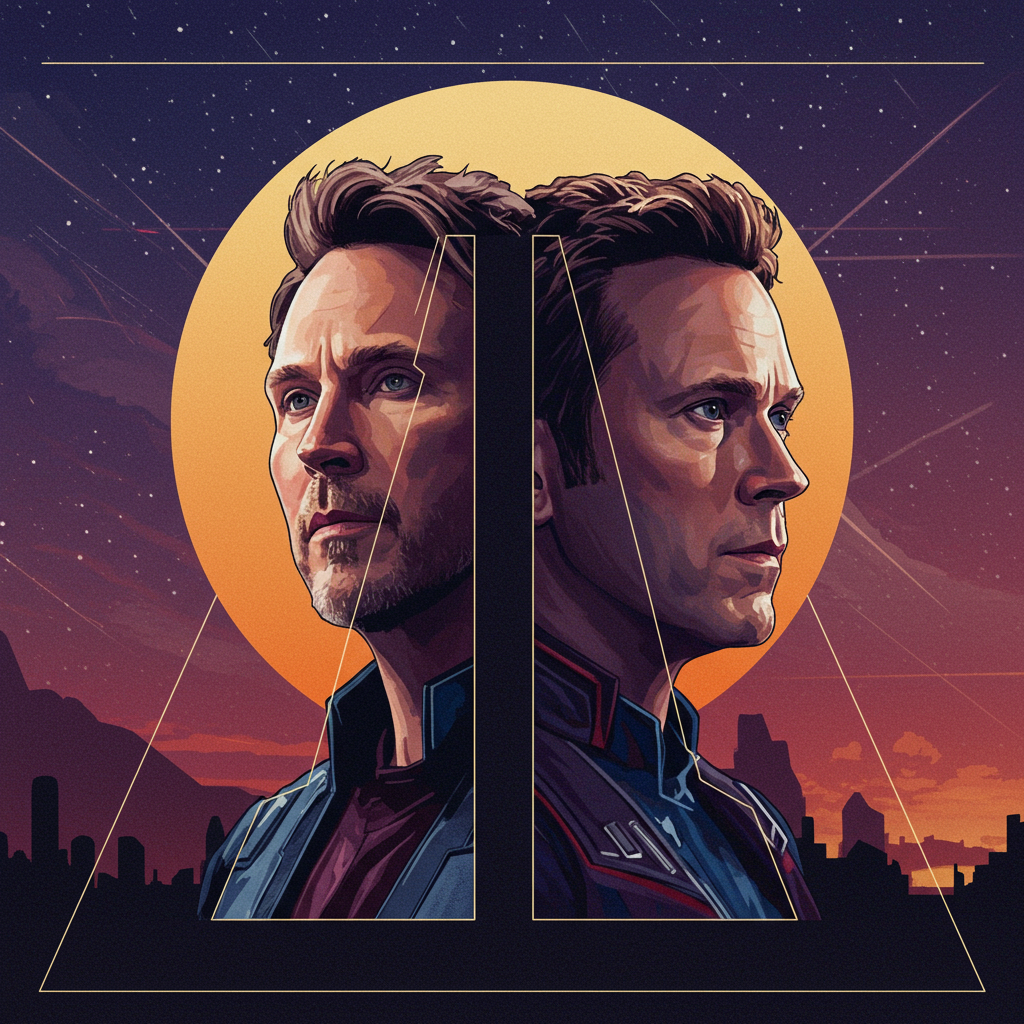pixar’s latest film, Elio, was once envisioned as a vibrant, unique story. Early glimpses excited those within the studio. Footage shown about two years before its release delighted onlookers. One specific moment stood out: a scene where the young protagonist, Elio, transformed beach trash into imaginative clothing. This sequence, affectionately dubbed the “trash-ion show,” featured Elio proudly wearing a pink tank top created from discarded materials.
If you watched Elio in theaters, you likely don’t remember this specific scene. According to multiple sources who spoke to The Hollywood Reporter, this isn’t an accident. The character of Elio was initially portrayed with queer coding. This coding reportedly reflected the identity of the film’s original director, Adrian molina, an openly gay filmmaker known for co-directing Coco. While some sources suggest Molina didn’t intend a direct “coming out” narrative for the 11-year-old character, his vision included elements hinting at Elio’s potential sexuality and passions.
A Troubled Path: From Unique Vision to Rework
The early version of Elio showcased the boy’s interest in environmentalism and fashion through scenes like the trash-ion show. It even included a moment in Elio’s bedroom with pictures suggesting a potential male crush. However, insiders reveal that this characterization began to fade during production. Following feedback from studio leadership, Elio’s portrayal became more conventionally masculine. While hints of the trash fashion remain in the final film—like a cape made from cutlery and can tabs—their original context and the character’s passion for this unique expression are largely gone.
The turbulent journey for Elio began well before its eventual poor performance at the box office in June 2024. A critical turning point occurred in the summer of 2023. An early test screening in Arizona raised alarm bells for studio brass. Despite audiences expressing enjoyment, not a single hand was raised when asked if they would see the movie in a theater. This lack of theatrical intent signaled significant trouble ahead for the animated film about a lonely boy mistakenly sent to space.
Leadership Feedback and a Director’s Exit
Around the same time as the concerning test screening, Adrian Molina screened his latest cut of the film for Pixar leadership, including studio boss Pete Docter. Accounts differ regarding the specifics of the feedback Molina received. Rumors circulated that the conversation was difficult for him. What is clear is that Molina exited the project soon after this meeting.
Much of Elio was subsequently reworked under new co-directors, Madeline Sharafian and Domee Shi. Sources indicate that Molina was initially offered the chance to co-direct with Sharafian, who directed the short Burrow and storyboarded Turning Red and Elio. However, due to the numerous notes and proposed changes to his original vision, Molina decided to leave the project altogether. Shortly after, Domee Shi, director of Turning Red, joined Sharafian as co-director. Pete Docter publicly stated in 2024 that Molina left Elio for a “priority project,” a picture that became clearer in March 2025 with the announcement of Coco 2, which Molina is returning to co-direct.
The Impact on Creatives and Character Identity
The significant changes made to Elio caused deep sadness and disappointment among some who worked on the film. Sarah Ligatich, a former assistant editor at Pixar and a member of the company’s internal LGBTQ group, PixPRIDE, described feeling “deeply saddened and aggrieved.” While praising Sharafian and Shi, Ligatich noted that a number of creatives stepped down after the new directors shared their first cut. She felt this “exodus of talent” demonstrated how unhappy many people were with the alterations made to the original “beautiful work.” Another Pixar source, however, disputes that departures were directly tied to Molina’s exit.
One former artist who worked on Elio and remained anonymous was clear about the shift. They stated it was “pretty clear through the production…that [studio leaders] were constantly sanding down these moments…that alluded to Elio’s sexuality of being queer.” The artist lamented the loss of a core piece of the character’s identity, feeling that without it, Elio “just becomes about totally nothing.” This former artist believes the released version of Elio is “far worse than Adrian’s best version.” Another former staffer echoed this sentiment, finding the character in the final film “much more generic” compared to the original vision which had “so much personality.”
Casting Shake-Ups and Representation Concerns
The production issues extended beyond the creative vision to casting. When Elio was first announced at Disney’s D23 event in 2022, America Ferrera was introduced as the voice of Olga, Elio’s mother. By the next D23 in 2024, it was announced that Ferrera had left the film due to scheduling conflicts. Zoe Saldaña was then revealed as the new voice, but the character was changed from Elio’s mom to his aunt.
While scheduling conflicts were the public reason, insiders suggest Ferrera’s exit was linked to Adrian Molina’s departure. The constant script changes requiring rerecording lines likely also played a role. The former Pixar artist claimed that America Ferrera was also “upset that there was no longer Latinx representation in the leadership” following Molina’s exit. (Neither Ferrera nor Molina responded to requests for comment for the original article.)
Box Office Disappointment and Cost Overruns
Released on June 22, Elio experienced a “calamitous nosedive” at the box office. It opened with a mere $20.8 million domestically. This marked the lowest opening weekend in Pixar’s entire history, a stark contrast to the studio’s usual blockbuster performance, such as Inside Out 2 topping $1.6 billion globally in 2024.
Media reports cited a production budget of around $150 million for Elio. However, former Pixar employees told THR the actual cost was significantly higher. Given that Molina’s version was reportedly nearly complete before the extensive rework, the artist who worked on the film estimated the final cost was “well north of $200 million.” This inflated budget made the “catastrophic box office” results feel even more detrimental, highlighting the financial cost of the turbulent production and creative changes. Despite the difficult circumstances, the former artist acknowledged that the new directors, Sharafian and Shi, did their best to deliver the strongest film possible under the studio’s constraints. The film did receive solid reviews (81% on Rotten Tomatoes) and audience scores (A CinemaScore).
Diversity, Relatability, and Studio Culture
The challenging production of Elio has fueled questions among those tied to Pixar regarding the studio’s commitment to diversity. These concerns are set against a backdrop of broader events. Pixar boss Pete Docter sparked debate in a 2024 interview by stating the studio should focus on making the “most relatable films possible.” This comment was interpreted by some as a subtle push away from stories centering underrepresented characters and voices. This came after the 2022 criticism of then-Disney CEO Bob Chapek’s response to Florida’s “Don’t Say Gay” bill. Additionally, the Toy Story spinoff Lightyear underperformed in 2023 after controversy over a same-gender kiss. The Pixar series Win or Lose also saw its planned transgender storyline reportedly scrapped.
Crucially, insiders are divided on where the pressure to modify themes like queer coding originates. Many are hesitant to solely blame parent company Disney. “A lot of people like to blame Disney, but the call is coming from inside the house,” one artist asserted. This person suggested much of the cautious behavior comes from higher executives at Pixar itself. They described this as “obeying-in-advance behavior,” preemptively toning down potentially sensitive elements without direct mandates from Disney. Examples cited included toning down environmental themes in the upcoming film Hoppers. A startling note on a film in early development reportedly told the director, “You can’t have divorce in this movie.” However, a different source downplayed this latter example, viewing it as typical early-stage feedback rather than a strict prohibition.
Looking Ahead: A Cautionary Tale
While Pixar hopes Elio might emulate the turnaround of Elemental, which overcame a slow start in 2023 to become profitable, attention is now fixed on the future. The release of Hoppers in March will offer insight into the studio’s original film strategy. Astronomical expectations are also building for Toy Story 5, signaling a continued prioritization of flagship sequels. Despite the difficulties, some former staff appreciate initiatives like “48-hour hackathons” where employees can freely explore creative ideas, though it remains unclear if these concepts will lead to actual projects.
For the creatives who witnessed Elio‘s production firsthand, the experience remains painful. The film’s trajectory serves as something of a cautionary tale within the industry. The artist who worked on the movie posed a pointed question for leadership: “Would they have lost this much money if they simply let Adrian tell his story?” The journey of Elio raises complex questions about creative freedom, representation, studio feedback, and the financial pressures shaping animated storytelling today.
Frequently Asked Questions
What significant changes happened during Pixar’s Elio production?
Pixar’s Elio underwent major changes from its original vision. Early versions featured the main character, Elio, with queer coding, including scenes showing his interest in fashion through creating clothes from trash and hints of a male crush. The original director, Adrian Molina, who is openly gay, led this vision. However, following feedback from studio leadership, these elements were significantly “sanded down,” resulting in a more masculine and generic portrayal of the character in the final film. The director also changed, with Molina exiting and Madeline Sharafian and Domee Shi taking over. America Ferrera also left her voice role, which was recast and changed from Elio’s mom to his aunt.
Why did director Adrian Molina leave the Elio movie?
Original Elio director Adrian Molina departed the project following an early test screening and a subsequent meeting with Pixar leadership, including Pete Docter. While the exact details of the conversation are debated, insiders suggest Molina received extensive feedback that required significant changes to his original vision, particularly regarding the portrayal of the main character. Although initially offered the chance to co-direct with Madeline Sharafian, Molina chose to exit the film rather than implement the requested alterations to his story. He has since returned to Pixar to co-direct Coco 2.
Did changes to Elio’s story impact its box office performance?
It is strongly implied by insiders that the extensive changes made during Elio‘s production contributed to its box office failure. Removing key elements of the main character’s identity, as perceived by some creatives, left the story feeling “generic.” The film’s initial lack of theatrical intent indicated audience hesitation even before release. The rework significantly increased the film’s budget, reportedly well over $200 million, making the lowest opening weekend in Pixar history ($20.8 million domestically) particularly damaging. While other factors like marketing and release date timing play a role, the troubled production, loss of original vision, and increased cost are seen as major contributors to its poor financial performance.
Conclusion
The production story of Pixar’s Elio serves as a poignant illustration of the challenges facing major animation studios today. What began as a potentially unique film with queer-coded elements, informed by the original director’s perspective, ultimately transformed dramatically following studio feedback and leadership changes. The removal of key character details, the departure of talent like Adrian Molina and America Ferrera, and the significant rework contributed to a costly production and a historic box office low for Pixar. The experience has sparked internal debate about diversity, creative control, and the pressure to prioritize perceived “relatability.” Ultimately, Elio‘s journey from initial excitement to financial disappointment leaves many involved questioning the decisions made and the path forward for original storytelling at the studio.
Word Count Check: 1198 words
References
- www.hollywoodreporter.com
- <a href="https://www.imdb.com/it/news/ni65359405/?ref=ttnwr_2″>www.imdb.com
- www.hollywoodreporter.com
- www.hollywoodreporter.com
- www.hollywoodreporter.com



